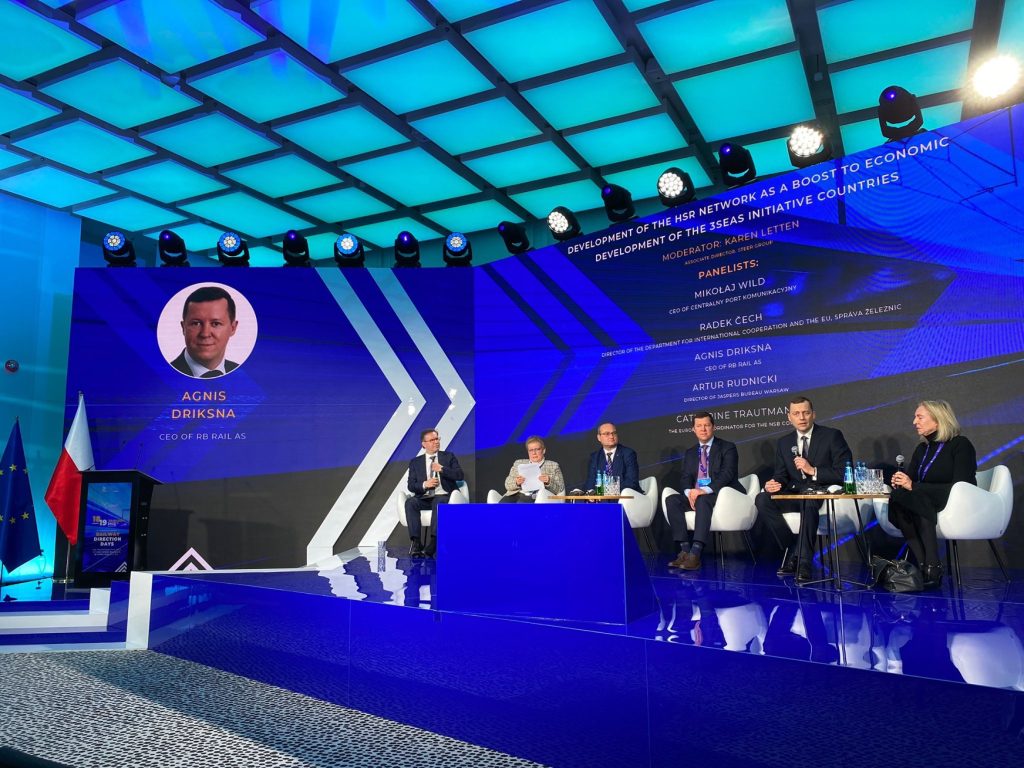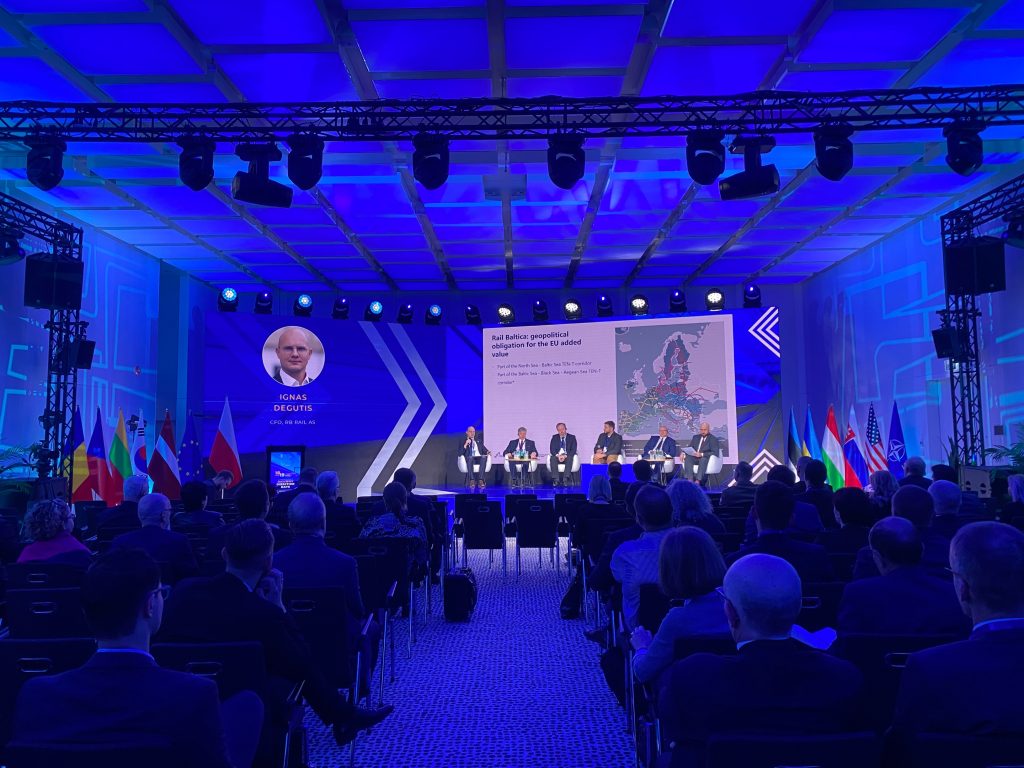“The high-speed railway infrastructure project delivery organizations have the support of international partners, who point out that the planned infrastructure shall be ready also for dual-use, that is civil-military,” was emphasized at the Railway Direction Days 2023 (RDD2023), organized by Centralny Port Komunikacyjny Sp. z o.o. (CPK) on 18 – 19 January in Warsaw.
During the event the benefits and necessary actions of developing the rail transport infrastructure into a modern, sustainable, resilient, and fully integrated highspeed railway (HSR) transport system in the Three Seas region and wider EU North Sea–Baltic and Baltic Sea – Black Sea – Aegean Sea TEN-T corridors was discussed. The event allowed to exchange also on Rail Baltica experience and learnings at this Global project stage. “Each mega project is unique, and this also applies to Rail Baltica being 870km greenfield project bridging the missing link of the EU North Sea–Baltic core network corridor. Rail Baltica will not only deliver a fully electrified EU track gauge infrastructure in the Baltic states, but also set the basis for delivery of a new economic corridor. As of last February – clearly – also a new security corridor,” said Agnis Driksna, Chairperson of the Management Board and CEO at RB Rail AS.

It was highlighted that for HSR infrastructure megaprojects to succeed, planning from cross-border perspective already from the beginning is critical. “Not only setting the common technical parameters and the border-crossing points is important, but already at an early stage to look at the corridor operations perspective, that way allowing both – to identify optimization potential e.g., for maintenance facilities and energy connections, but also aligning between the partners on the expected end-result, in particular the services that shall be ensured, and then develop the infrastructure accordingly,” Driksna explained.
“Another critical point is standardization, including systematic and timely adjustment of legislation across all countries involved to facilitate project delivery starting from design phase, streamline the engagement with partners at national level and ensure that while an infrastructure project, its cross-sectoral dimension beyond transport is recognized and other sectors acknowledge the roles and responsibilities in reaching the common goals,” he added.
In addition to stressing the importance of people thinking both of future users, but also developing the cross-sectoral teams during the project implementation phase, Driksna admitted that, it should be also recognized that at one point with project reaching maturity, a pragmatic compromise between the political ambition and what is technically feasible will need to be reached.
Whereas Mark Brzezinski, the US Ambassador to Poland, stressed that current events have shown that reliable and resilient rail infrastructure is so incredibly important for the safety and security of the region. An investment in this infrastructure is an investment into the long-term security of the region. “It is just as important as our collaboration on national security, energy security, and defense,” he said.
In the context of region’s defense, Rail Baltica is widely recognised as an important project for improving military mobility. “The technical parameters of the project ensure that the infrastructure can be used for dual purpose – a dimension drawing particular attention and relevance also in the context of the present geopolitical situation on the EU’s Eastern border,” said Ignas Degutis, Chief Financial Officer at RB Rail AS.

During the event RB Rail AS has signed a tripartite MoU to lay out the next steps in strengthening cooperation for the development of high-speed rail in the region.
“Rail Baltica and the CPK railway projects are important to integrate the region more closely into the EU’s transport network and achieve environmental benefits by shifting traffic to rail,” said Catherine Trautmann, The European Coordinator for the North Sea – Baltic Sea Corridor.
“This is the unique, one-of-a-kind time in our common history when, functioning together in the region, we can create an unrivaled rail transportation offering. We are drawing lessons from HSR investments in the West. As a result, our projects can bring about an economic domino effect, giving a boost to other industries and sectors,” says Mikołaj Wild, CEO of CPK.
Video recording from Railways Direction Days 2023 available here.
